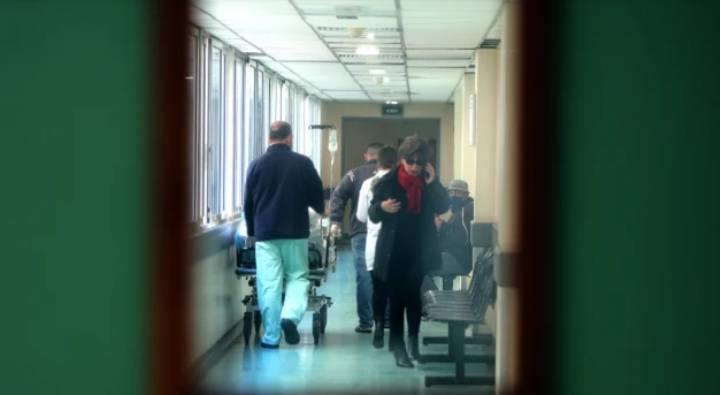The Syndicate of Hospital Owners has passed the data demanding the expedited release of its outstanding dues, beginning a new phase of confrontation by requesting to establish an index for collecting its dues in line with the method used for determining drug prices. Practically, the syndicate has shifted its stance, calling for the collection of dues based on the exchange rate of the dollar at the time bills are prepared. However, are the insurers on the same wavelength? The time of the lira has ended, and dollarization has begun. This shift is evident whether through an official decision, such as the one made by the Ministry of Economy allowing supermarkets to price in U.S. dollars, or through "imposition" via the daily pricing of goods based on the fluctuations of the exchange rate, as is the case everywhere without exception. However, pricing services in some instances becomes daunting, especially when it comes close to essential services that cannot be dispensed with. The discourse here touches on what the Syndicate of Private Hospitals in Lebanon has put forth in its latest "warnings," calling for the establishment of an index for its dues from insurers, similar to what is practiced in the drug pricing process. This index is justified by the syndicate president, Sleiman Haroun, based on the dollarization occurring. In the case of hospitals, Haroun indicates the following equation: "Since we are currently paying 90% of our costs in fresh dollars equivalent to the market, what is required is to collect this percentage as we are paying." It is clear to Haroun: as we pay, that is, as the dollar is priced in the parallel market. There is no other equation that could suffice.
Haroun emphasizes that the proposal "needs to meet a response," so that the hospitals do not face collapse. However, does the concerned party have the capacity to proceed with this proposal?
### Employee Cooperative: Exaggeration in Demand
While the Ministry of Public Health hesitates to announce its position on what the Syndicate of Private Hospitals is requesting, awaiting the outcomes of the committee formed to discuss proposals and the health situation, the "available" resources with other guaranteeing funds, especially the National Social Security Fund and the State Employees Cooperative, do not reflect that the Syndicate's proposals are negotiable. The reason is not a lack of willingness, but rather the existence of an unbridgeable gap between what the hospitals are requesting and what those entities possess in their funds amidst a dire crisis. These latter entities confront a reality all of which is dollarized when dealing with the lira.
Regarding the first entity, the State Employees Cooperative, the capabilities are not only limited but entirely absent, based on a budget that largely relies on state aid, according to the director-general of the cooperative, Dr. Yahya Khmeis. While Khmeis considers that the hospitals "are correct," it remains from "their point of view" and cannot be seen as a "compulsory mandate" on the opposing view of the cooperative. Khmeis, although understanding the rapidly changing situation, sees "exaggeration in the proposal," citing reasons such as "some services have increased their prices without justification or without us understanding why, to the extent that it seems the majority of hospitals still operate with the same previous mentality, and some have become bigger than five-star hotels." Moreover, guaranteeing entities are not "money printers," but rather are governed by budgets and subscriptions that have rarely been adjusted.
For the cooperative, in last year's budget, a proportion of 600 billion lira was allocated for hospitalization and drugs, "and we managed to increase coverage to about 10 times, equivalent to a dollar value of 15,000." As of today, "I cannot discuss a new ceiling if I do not have a budget that meets the purpose; I am bound by what is allocated to me in the budget, and this remains the size today." On the other hand, Khmeis points out that according to studies recently conducted by the cooperative — when the dollar was equivalent to 75,000 — "we need a budget estimated at eight thousand billion lira, of which 5,000 billion is for hospitalization and medicine, which is very close to reality even if it does not fully cover it." Khmeis indicates that he has communicated with those concerned regarding the cooperative's proposal, but knows that those figures remain theoretical "because in practice we do not have a response about what the state will pay." Therefore, Khmeis firmly states that "there is no possibility today for the difficult figures presented by the Syndicate of Hospital Owners," emphasizing in the same context that nothing is negotiable "except through the collaboration of all parties, even if that does not mean that the crisis will be solved in a fundamental or ideal manner."
### Social Security: No Parity
The National Social Security Fund is not in a better position. Its structure makes discussing the possibility of pursuing such options challenging, both in terms of its budgets, which depend on subscriptions, and in terms of the burden it has absorbed, as it has accumulated significant amounts due from the state, which have lost value in all circumstances. For social security, there is no parity; it is bound by limited financing, which requires extensive studies before any decision is made. Currently, "the fund's basic reliance on subscriptions, and the actual declaration by institutions regarding salaries or even about their employees does not reach the level of declaration." Moreover, the state has harmed the social security system; instead of being regulatory, it issued a hybrid decision under which all that institutions pay their employees in social aid for 2022 and 2023 is not subject to subscriptions and is not declared, which has now become an excuse for institutions to keep salaries fixed at a certain level, considering everything else as social aid. This occurs without the state working on establishing a fair minimum wage, as it has remained absent until now.
Therefore, any proposal today is based on a fundamental equation: equal treatment. According to sources, "If hospitals consider that 90% of their costs are in U.S. dollars and demand the insurers to settle on this basis, then they must adjust their policy and declare to social security the salaries of their employees as they pay them. If they believe they are paying part of them in dollars, then they should declare it in order to receive from social security what they intend."
For social security, the issue lies here; any amendment today requires, in principle, "that the guaranteeing entities reshape their entire health system." The reevaluation must start with "filtering" the invoices, scrutinizing them, and answering a series of questions, including: what is the economic outlook? Are we headed towards comprehensive dollarization? Due to the lack of guaranteed answers today, sources believe that discussing such proposals is not appropriate for the current phase, necessitating "clarifying the phase, particularly the stability of the situation, especially the monetary one, whether regarding the stability of the exchange rate or clarifying the structure of salaries so that we know how much we can collect in terms of subscriptions. Anything beyond that would mean wanting to burden the fund with obligations it cannot bear." Thus, either the entire cycle must commence together with the agreement of all stakeholders "to lay integrated strategies, or the strong will continue to weigh down on everyone."




